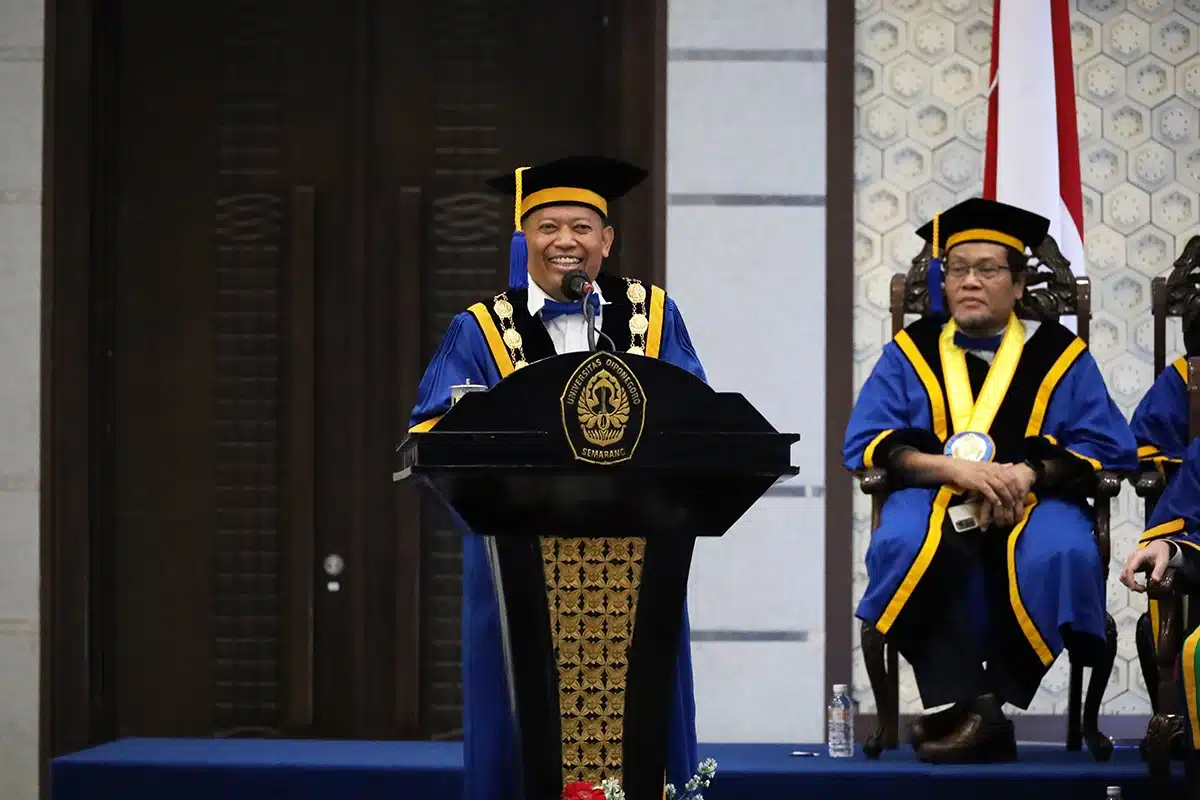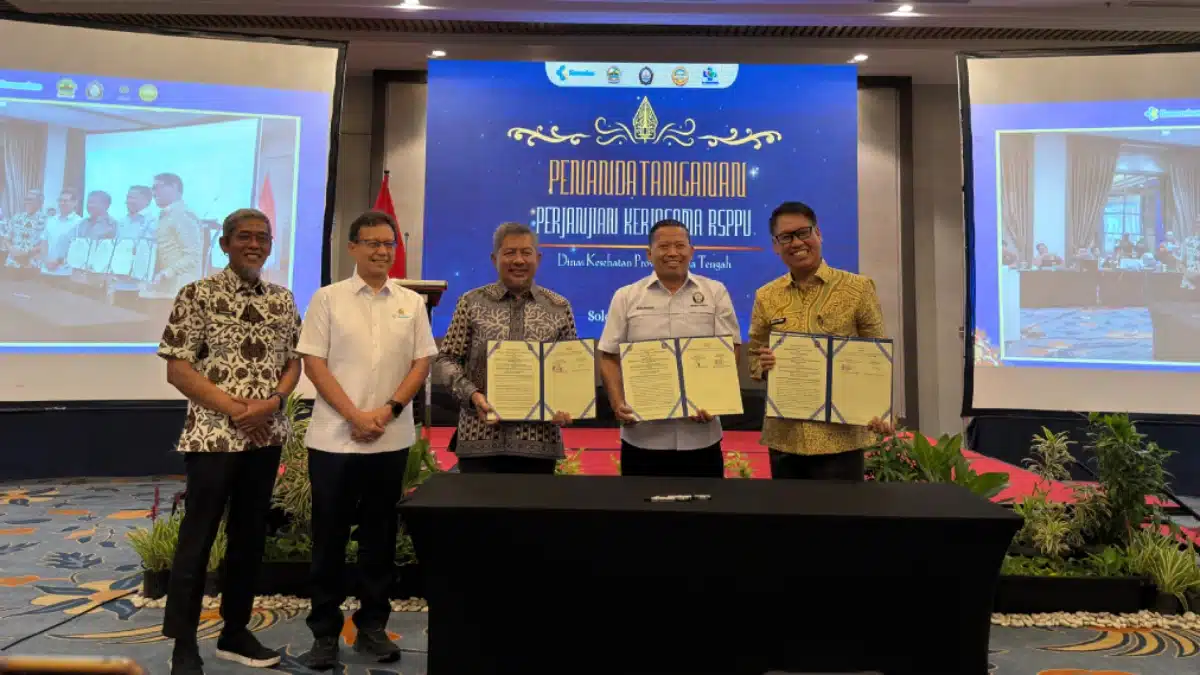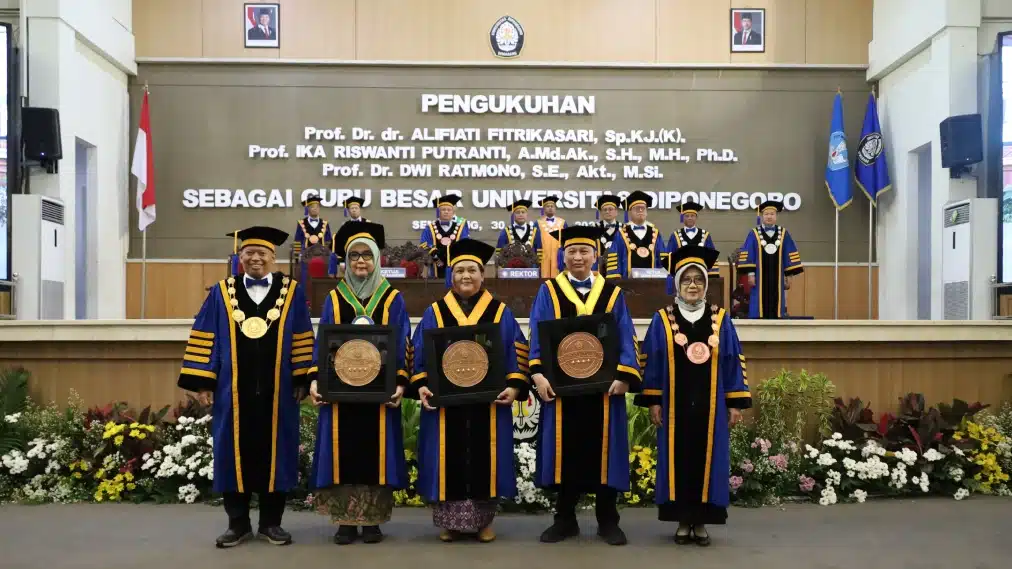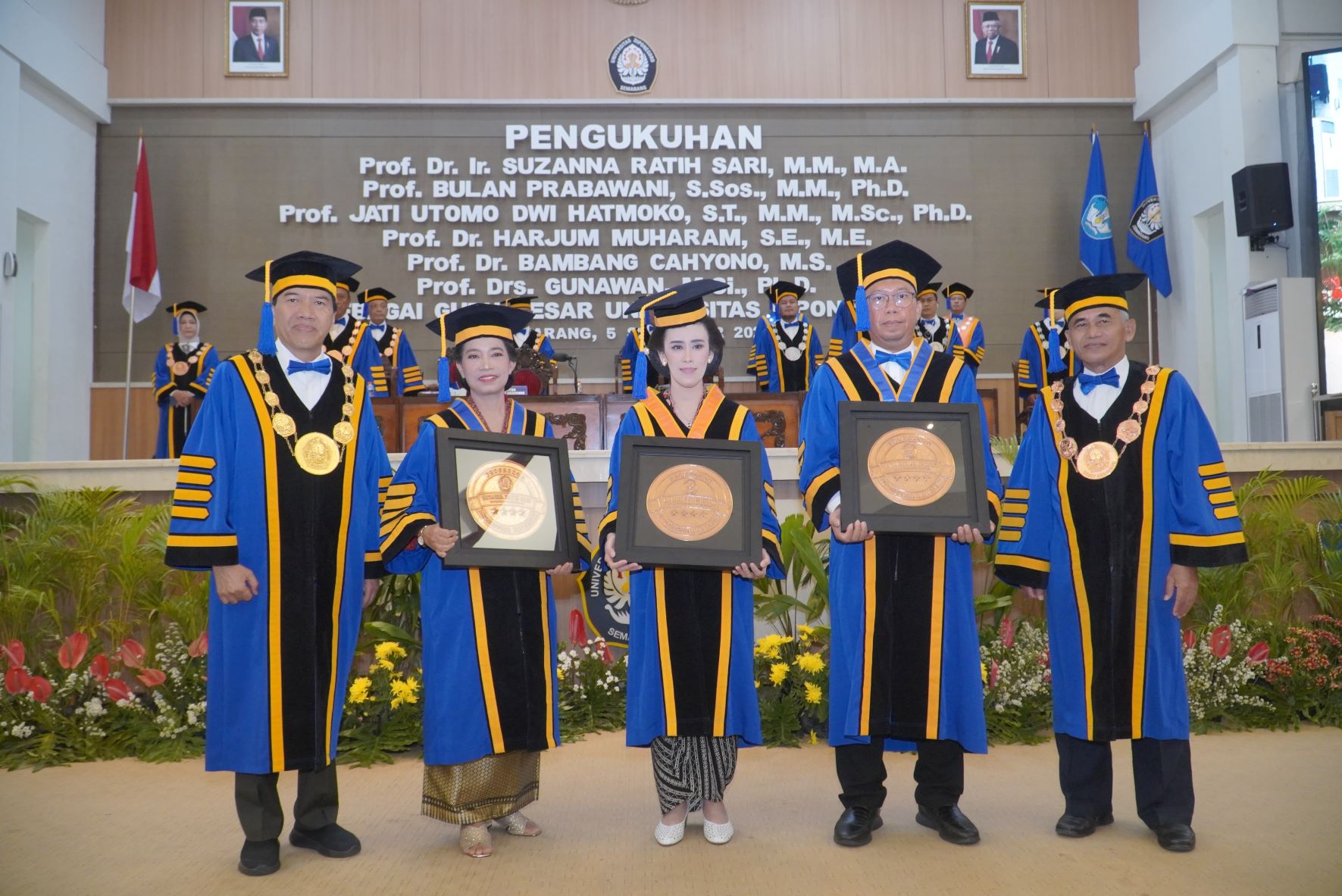Diponegoro University held a marathon inauguration ceremony for professors from 5 to 19 September 2023 for 25 (twenty-five) professors. Following the upcoming agenda was the inauguration of 17 (seventeen) new Undip professors. As many as 42 (forty-two) Professors are ready to be confirmed. It began with the inauguration of 3 (three) Undip professors on Tuesday (5/9) in the Prof. Soedarto, SH. Building, Undip Tembalang Campus. The three Professors who were inaugurated in the first phase of the morning session were Prof. Dr. Ir. Suzanna Ratih Sari, M.M., M.A. (Faculty of Engineering); Prof. Bulan Prabawani, S.Sos., M.M., Ph.D. (Faculty of Social and Political Sciences); and Prof. Jati Utomo Dwi Hatmoko, S.T., M.M., M.Sc., Ph.D. (Faculty of Engineering).
In his remarks, the Rector of Diponegoro University, Prof. Dr. Yos Johan Utama, S.H., M.Hum. said that being a professor carries a big academic responsibility, not only in the academic field but also in the non-academic field. In the academic field, a professor must be able to develop his knowledge into knowledge that is useful not only for humanity but also for the universe. As a professor, you must find innovations that are always up to date so that science always develops and is always adaptive to current developments.
“In the non-academic field, a Professor becomes a role model, and his figure must be able to become uswatun hasanah, a role model in kindness. This role model includes having the courage to state that what is right is right and what is wrong is wrong according to the knowledge that one believes in. Let us not fall into the group of hypocrites. That is, they believe in the truth of science but, in practice, deny it for the sake of mere mortal things in this world,” he said.
In her scientific speech, Prof. Suzanna discussed the problems often faced by tourist villages, namely the tendency for towns created to last only a short time. Several reasons include that people are less sensitive to the tourism potential in their village, and the concept of tourism village planning needs to be more mature.
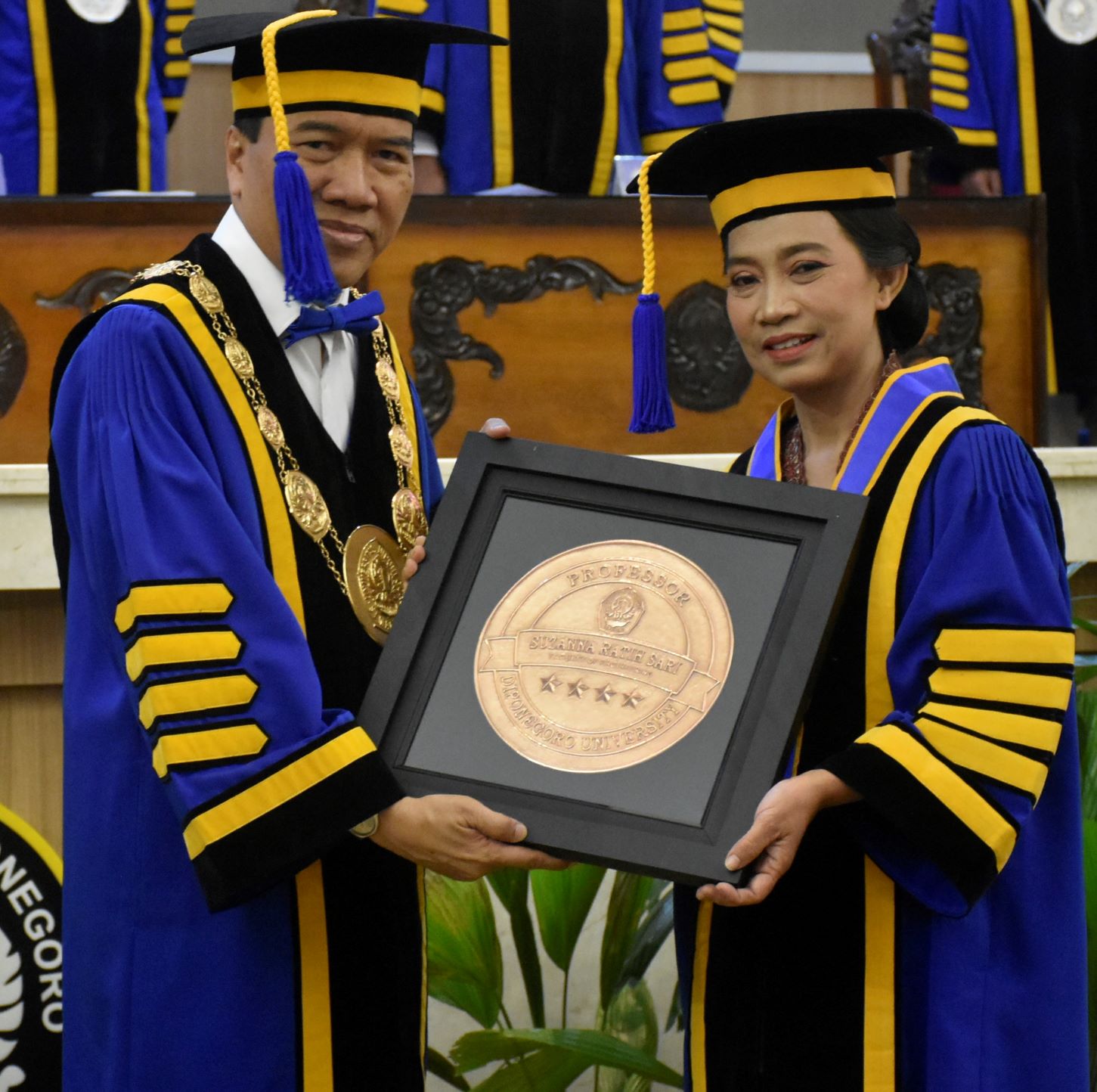
“The concept of eco-humanist architecture is based on a study of ecotourism and humanist architecture. “This concept can open people’s minds to create a tourist village that accommodates tourists from various community groups, including people with disabilities, without losing the originality of the village and as an effort to preserve the existing environment,” she explained.
Meanwhile, Prof. Bulan presented a scientific work entitled “Agroforestry Entrepreneurship as a Sustainable Business Alternative.” He said business activities produce goods and services to meet human needs, creating jobs, opportunities for entrepreneurs, and regional and national economic growth.
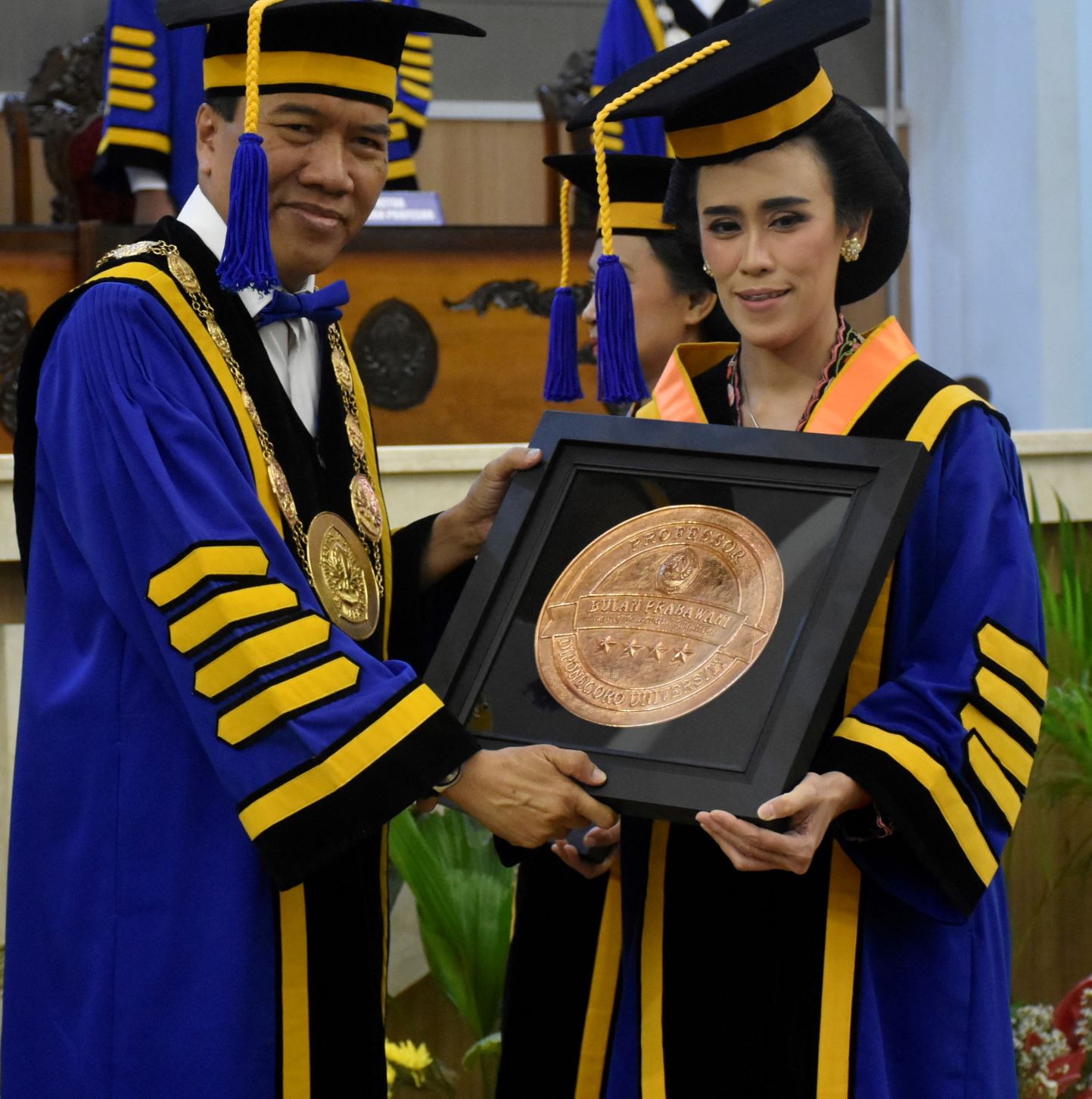
“On the other hand, business activities cause environmental and social impacts in the form of water, air pollution, piles of rubbish and dust, which in turn have an impact on public health,” he continued.
Meanwhile, Prof. Jati Utomo, in his speech with the theme “Construction Risk Management Through Digital Transformation,” said that the world of construction has been known throughout the history of human civilization for thousands of years. However, the construction industry generally lags behind other sectors, such as manufacturing or automotive.
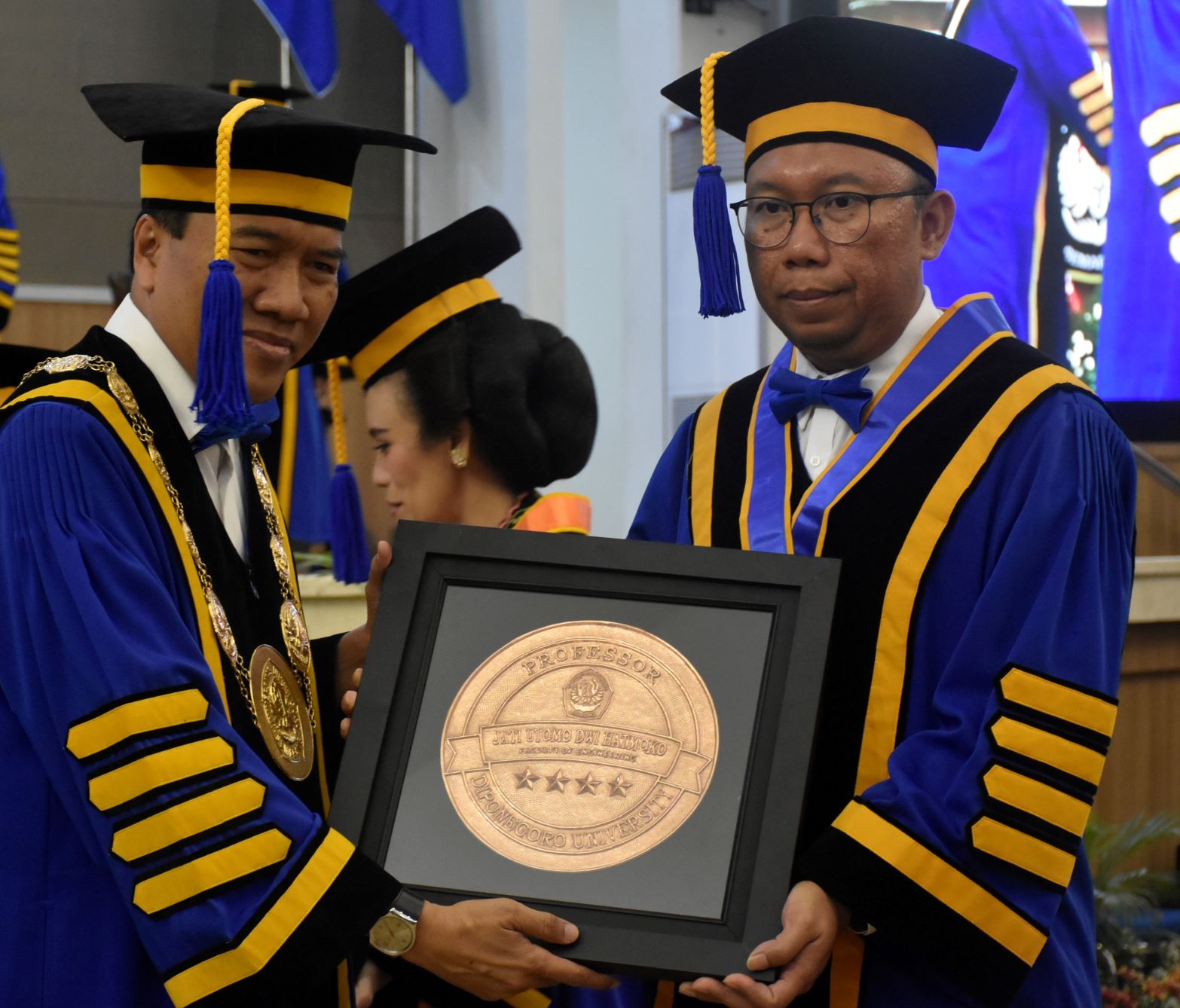
“The construction industry is known to have high complexity and risk, and until now globally, it is still plagued by various classic problems that detain the efficiency of the construction process, including delays in project completion (delays), cost overruns, low-quality workmanship, low safety levels, and so on,” concluded Prof Jati. (LW/Diyah – Public Relations)


